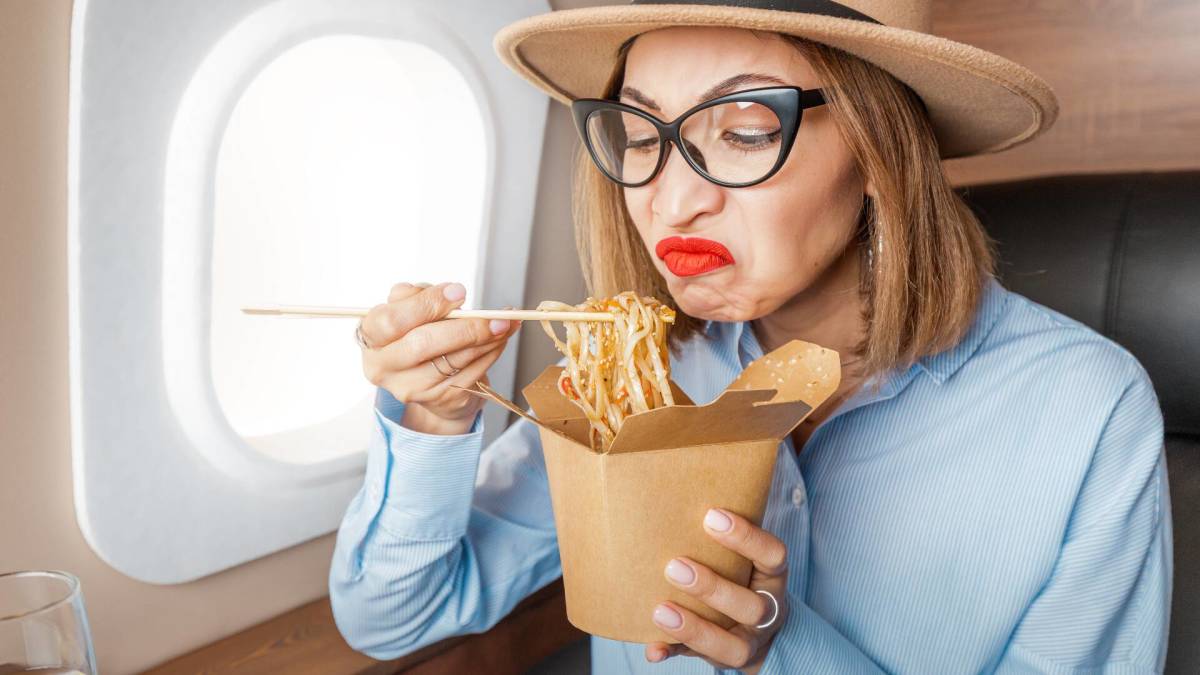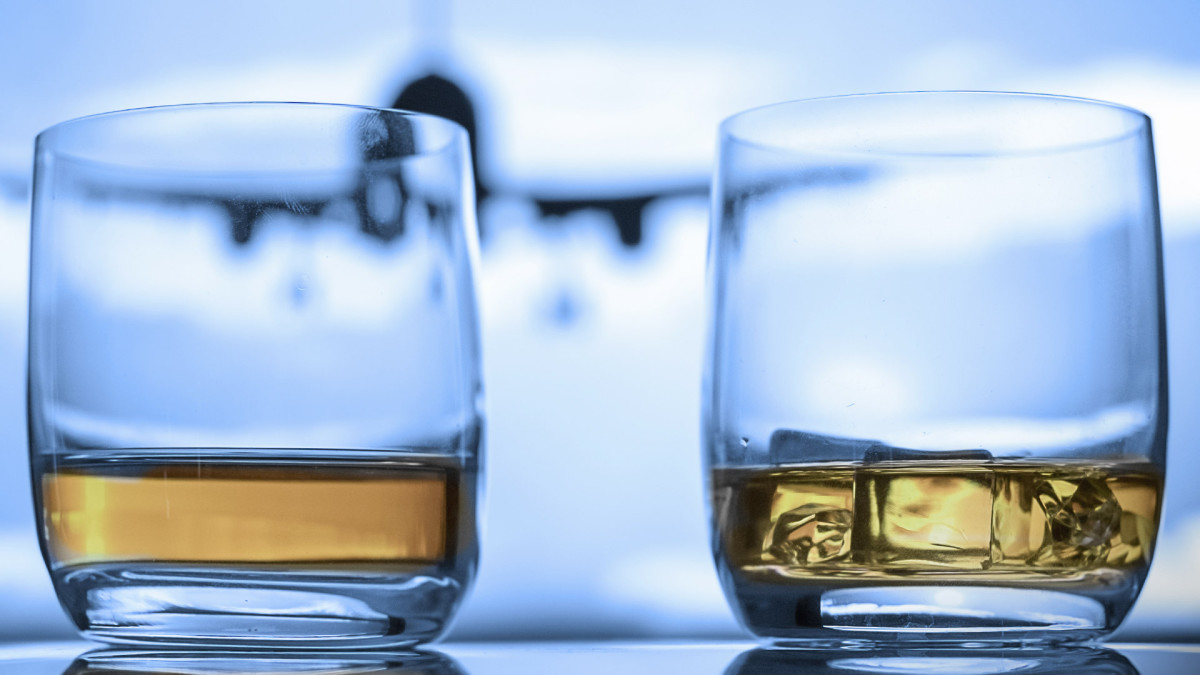
Ever board a plane and noticed that something smells off? In the best case scenario, this can be a passing whiff of a nearby neighbor overdoing it with hand sanitizer or a sprayable perfume while, in the worst cases, this can be a bathroom stench that lasts throughout the length of the flight or even fumes that indicate an in-flight emergency.
One peer-reviewed paper from researchers in the Netherlands found that the types of smells one comes across during the flight can play a significant role in both real and perceived comfort of travelers in the aircraft.
Related: Airplane Makes Emergency Landing After Overhead Bin Erupts in Flames Mid-Flight
And as Christopher Elliott recently wrote in his column for USA Today, airlines have generally displayed inconsistency both in terms of explicit policies and enforcement if passengers use perfumes or other products that elicit strong smells.

TheStreet/Shutterstock
'A war of scents going on at 36,000 feet...'
"There's a war of scents going on at 36,000 feet, and it's escalating in ways you can't see (but will probably smell)," Elliott writes. "Some passengers are treating personal hygiene as if it's optional. Others are taking matters into their own hands by spraying unapproved scents. Airlines, meanwhile, are maintaining a double standard for smells."
More Travel:
- A new travel term is taking over the internet (and reaching airlines and hotels)
- The 10 best airline stocks to buy now
- Airlines see a new kind of traveler at the front of the plane
On its website, Delta Air Lines (DAL) states that it reserves the right to refuse to transport a traveler "when the passenger's conduct, attire, hygiene or odor creates an unreasonable risk of offense or annoyance to other passengers" while JetBlue Airways (JBLU) says that removal may occur if someone has "an offensive odor, except where such condition is the result of a qualified disability."
United Airlines (UAL) in turn phrases it as "passengers who have or cause a malodorous condition" — whether due to personal hygiene or what they transport.
"One frequent offender is durian fruit, with its distinctive odor of honey, sewage and rotting onion," Elliott wrote. "It has forced several planes to make emergency landings. Many airlines ban durian fruit despite its popularity in Asia."
'Airlines need to hold themselves to the same standard they set for passengers...'
In practice, however, air crew workers will rarely take steps to remove someone for such a reason due in no small part to the PR crisis that can occur if a passenger is deemed "smelly." Flight attendants often also do not have the capacity to deal with incidents that occur during the flight. In one high-profile case, two Air Canada (ACDVF) travelers found that the seats they were supposed to sit in were covered in vomit and were then told to sit in them anyway.
Airlines will also generally have a signature smell with which they spray the interior of the cabin and that, while meant to evoke pleasant feelings, makes it difficult to promote themselves as being odor-free and discourage travelers from using their own perfumes and scent products.
"Most importantly, airlines need to hold themselves to the same standard they set for passengers," Elliott wrote. "In other words, no industrial cleaners in the bathroom and no signature scents called 'calm,' 'happy,' or 'I want to sign up for your addictive loyalty program.'"
Related: Veteran fund manager picks favorite stocks for 2024







